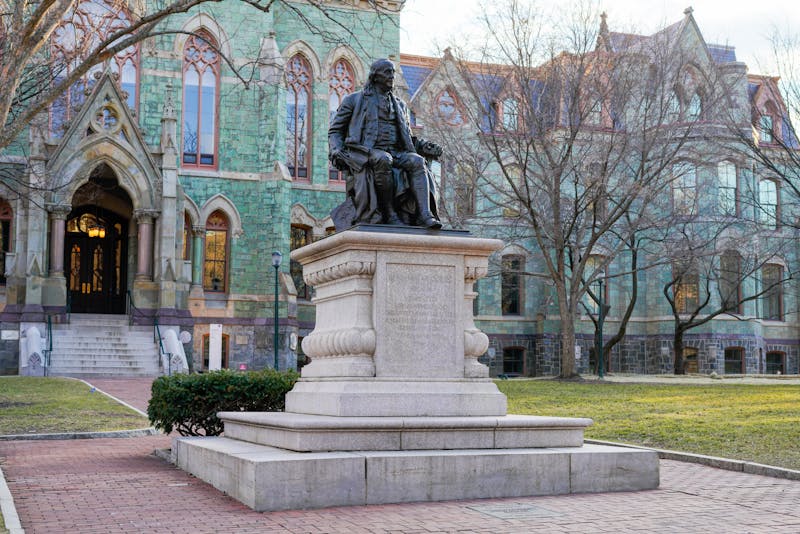It is like any other kids' summer camp. Counselors lead a crowd of children in games, plays, sports, and arts and crafts projects.
But participants -- who are all diabetic -- are also taught to count carbohydrates and learn about blood sugar levels as part of their camp experience.
The brainchild of 2002 Penn graduates Jesse Fuchs-Simon and Nicolas Cuttriss, American Youth Understanding Diabetes Abroad grew out of an experience the Fuchs-Simon family had with a friend's child suffering with diabetes.
As a junior in high school, Jesse Fuchs-Simon began AYUDA with the help of Cuttriss.
Since then, every summer a group of around 20 volunteers has traveled to Ecuador to host a weeklong day camp for diabetic Ecuadorian children.
To finance these missions, the entirely student-run group is hosting its third annual Black and White Ball tomorrow at the Park Hyatt at the Bellevue hotel in Center City.
Featuring a silent art auction, dessert bar and DJ, the event drew around 700 attendees -- mostly Penn students and AYUDA alumni -- last year, according to Fuchs-Simon. This year, he said he hopes to attract over 1,000 guests.
The proceeds from the $55 entrance fee will go toward financing the camps and conferences.
And those who have facilitated these camps in prior years say the personal relationships formed are paramount to the experience.
Management and Technology senior Jake Rosenberg recalls one camper who was once really embarrassed about having diabetes and who will be returning to the camp this summer as a counselor.
"We have changed the way people feel about themselves, which is our biggest goal," he said.
Other AYUDA members believe this learning is a reciprocal process.
"I really learned a lot more than I expected -- not only about educating people about diabetes, but about the Ecuadorian community as a whole," said College senior Sarah Sobotka, who participated last August. "Spending time with the kids taught me more about their life with diabetes."
And despite the limited time frame and resources curtailing AYUDA's interaction with these children, members feel their efforts are worthwhile.
"I feel like we really made a difference in that week at camp," College senior Karen Siegel said. It takes $1,000 a year [to care for a diabetic child], and most families don't even make that."
Other participants valued the opportunity to venture beyond the sometimes confining and myopic feel of University life.
"It is a good opportunity for us as Penn students and Americans to see the conditions that other kids are involved in," Siegel said.
Eight years after its inception, the program's members are planning to travel to Chile the week after spring break to hold an international youth conference on diabetes that will feature young-adult participants from Australia and France, and endocrinology experts from Los Angeles and Ecuador.
The object is to train local youth leaders how to run a camp in hopes that the program may one day be implemented without the assistance of AYUDA.
"Our whole philosophy is youth empowerment," said College sophomore and AYUDA member Raffi Fuchs-Simon. "What we are trying to do is create a self-sustainable organization. We don't want to keep just being the people who come down and give."
While these camps frame their participants' disease in an upbeat manner, the children still face daily reminders of the seriousness of their health condition.
Rosenberg recalls a 6-year-old camper who suffered from mosquito bites.
"'My mommy says I get mosquito bites because I have sweet blood,'" Rosenberg recalled the boy saying. "'But I know it is because I am diabetic.'"
The Daily Pennsylvanian is an independent, student-run newspaper. Please consider making a donation to support the coverage that shapes the University. Your generosity ensures a future of strong journalism at Penn.
DonatePlease note All comments are eligible for publication in The Daily Pennsylvanian.







